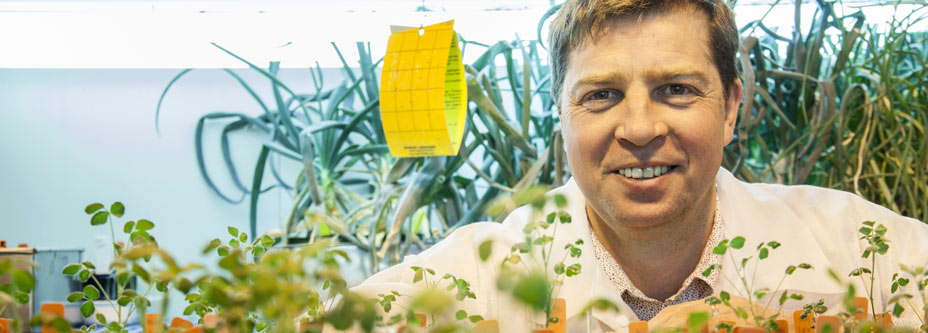
Blooming good research
Dr Richard Macknight (Biochemistry) has a thing about peas and lentils and other legumes – not so much on a dinner plate as in a laboratory.
Macknight is involved in research that aims to discover how legumes use seasonal changes in daylight hours and temperature to control when to flower, and to understand how this process has evolved to allow legumes to be grown in different parts of the world.
Macknight says the research is based on the differences in the sequence of genes between ancient varieties of legumes that still grow in the Mediterranean region and don't flower in the shorter daylight hours and lower temperatures further away from the equator, and the varieties that do flower under those conditions.
“Every plant needs to know what time of day it is – to predict, for example, that the sun is going to come up and they have to get ready for all the processes that are going to happen for photosynthesis and the like. One of the key differences in the plants that flower in the shorter day hours is that they seem to have a different internal clock.
“Flowering is absolutely critical in any breeding programme and hopefully this knowledge will enable plant breeders to more efficiently develop new legume varieties tailored for different geographical regions.”
Macknight is carrying out the work with the assistance of research students and staff in his laboratory and in collaboration with other researchers, notably in the School of Plant Science at the University of Tasmania.
